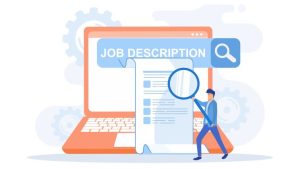Empowering Career Change: Leveraging Transferable Skills
 Publié le 29 May 2024
Publié le 29 May 2024
Take your professional life down an exciting new path by leveraging transferable skills for empowering career change.
Gone are the days when professionals remained in the same industry or role for decades. In this environment, the ability to pivot and embrace new opportunities is more crucial than ever before in order to keep your career on the path to growth and achievement.
The question is, how do you make the leap from one field into a completely new one in which you have zero experience?
The answer lies in your transferable skills. By harnessing and repurposing existing skills, you aren’t starting from scratch but, rather, strategically adapting your expertise to new career pathways.
Below, let’s look at how you can leverage your transferable skills for empowering career changes and successfully making the transition into a new field.
Understanding Transferable Skills
Transferable skills are versatile abilities and competencies that can be applied across various roles, industries, and professional settings. These skills, whether innate or acquired, are not tied to a specific job or field. Instead, they are applicable in diverse career environments across multiple industries and sectors.
Transferable skills can either be categorized as soft skills or hard skills. Soft skills are interpersonal attributes and personal qualities that facilitate effective interaction, collaboration, and personal growth. Examples include communication, problem-solving, critical thinking, teamwork, leadership, time management, and digital literacy, among others.
Hard skills, on the other hand, refer to technical abilities and job-specific knowledge, such as coding, data analysis, digital marketing, writing and editing, or financial literacy. Even seemingly minor things, like experimenting with different cloud providers, can turn out to be a transferable skill. What if the company is looking for an AWS alternative and ends up hiring you precisely because you know more than they expected?
Employers value these skills because they show that you can quickly adapt to new roles and challenges. Recognizing and cultivating your transferable skills can dramatically increase your employability and career resilience, and are a great asset for empowering career change.
Identifying Your Transferable Skills
Recognizing and articulating your transferable skills is the first step in leveraging them for a successful career transition. Here are some effective strategies to help you identify your unique transferable skill set:
Self-Assessment Techniques
Start by creating a comprehensive list of all your skills – both hard and soft – and evaluating how applicable they are across different job roles. Reflect on your past experiences, achievements, and areas of expertise to come up with this list.
Complement your skill inventory with personality tests like the Myers-Briggs Type Indicator (MBTI) or the StrengthsFinder assessment. These tests can provide valuable insights into your personality traits, work styles, and inherent strengths, which can translate into transferable skills.
Seeking Feedback
Feedback from colleagues, mentors, and professional networks is also a great way to identify your transferable skills. Ask trusted co-workers or team members for candid feedback on your strengths, areas of expertise, and valuable contributions. Their perspectives can shed light on skills you may overlook or take for granted, allowing you to refocus your professional development goals.
Analyzing Past Experiences and Accomplishments
Reflect on your previous roles, projects, or initiatives and identify the skills you leveraged to achieve success, overcome challenges, or deliver exceptional results.
For example, consider a time when your problem-solving skills resolved a critical issue or when your leadership led a team to success. Analyzing these accomplishments helps you understand not only what your transferable skills are but also how you can best articulate them in terms that resonate across various professional contexts.
Finally, review your academic achievements, certifications, or completed professional development courses. These often cultivate transferable skills like research, analysis, and learning agility.
This exercise not only boosts self-awareness but also prepares you to showcase these skills effectively in your resume and interviews, making your career pivot smoother and more strategic.
Marketing Your Transferable Skills
Customize your resume and cover letter to emphasize the transferable skills most relevant to the job you’re applying for. Use specific examples that demonstrate how you put these skills into action.
For instance, if you’ve been using elements of data science in your day-to-day tasks, highlight them in your resume and cover letter and show how you can apply the skills in a role like backend development or data science in a broader sense.
Remember to use language that resonates with the industry you are targeting and mirrors key terms used in the job description.
Leverage Social Media and Online Platforms
Social media platforms like LinkedIn are invaluable tools for showcasing your professional capabilities. Update your profile to highlight your transferable skills, backed by endorsements and recommendations from colleagues that reinforce your claims.
Regularly share content related to your skills, such as articles, project updates, and professional achievements, which can attract the attention of recruiters and hiring managers in your desired field.
Networking and Informational Interviewing Strategies
Attend industry events, conferences, or meetups related to your target field. Interact with professionals in the field, share your transferable skills, and gather insights on how to transition effectively.
Another tactic is to engage in informational interviews with individuals in the roles or industries where you aim to transition.
During these interviews, ask around and try to determine how relevant a skill is. For instance, if you know how to merge PDF files, set up a virtual machine, or tweak operating systems, you might discover that any remote-heavy role is a good fit since you don’t need any tech-related hand-holding.
These discussions can provide insider insights and advice on how to effectively align your transferable skills with industry expectations. Additionally, such networking activities can often lead to unexpected job opportunities and collaborations that might not be advertised publicly.
Honing and Developing Transferable Skills
To remain competitive and adaptable in the job market, you need to continually refine and expand your transferable skills, especially when considering making a career change. Here’s how you can actively enhance these essential capabilities:
Continuous Learning and Professional Development Opportunities
Invest in your professional growth through ongoing education and training. Enroll in courses, workshops, and seminars that align with the skills you wish to develop or strengthen. Many institutions and online platforms offer specialized programs aimed at enhancing skills like digital literacy, communication, and leadership.
These learning opportunities not only improve your existing skill set but also show potential employers your commitment to staying relevant in your field.
Seek Mentorship and Industry-Specific Guidance
Mentorship can be a powerful tool in your professional arsenal. Seek out mentors who have successfully navigated career transitions or who excel in areas where you wish to grow.
A mentor can provide personalized advice, support, and insights that are invaluable for understanding industry nuances and identifying skills that are in high demand. They can also help you navigate challenges and set realistic, achievable goals for your career development. All these factors are great for empowering career change in any industry.
Volunteering or Pursuing Side Projects
Another excellent way to cultivate your transferable skills is to engage in volunteer work or side projects related to your career interests.
These experiences allow you to apply your skills in real-world settings and often provide the flexibility to experiment with new roles without the commitments of a full-time job.
Transitioning from Declining to Emerging Industries
While navigating a career transition can be challenging, it becomes even tougher when transitioning from a declining industry to an emerging one.
Take a closer look at leveraging your transferable skills and analyze how they can be applied in emerging industries.
For instance, if you have strong project management skills from your previous role, these could be valuable in newer green industries like renewable energy, where new projects and initiatives are constantly being launched.
To use another example, analytical and problem-solving skills can be leveraged in fields like data science, artificial intelligence, or cybersecurity.
Research and Understand Industry Trends and Skill Demands
Stay informed about the latest industry trends, technological advancements, and market demands. Read industry publications, attend relevant events or webinars, and follow thought leaders in your desired field.
This will help you understand the specific skills and competencies valued in emerging industries, allowing you to align your transferable skills accordingly when you wish to make a career change.
Strategies for Positioning Yourself as a Valuable Asset in a New Industry
Once you’ve identified your transferable skills and understood the industry demands, it’s time to position yourself as a valuable asset to potential employers.
This includes tailoring your professional branding materials, such as your resume and LinkedIn profile, to emphasize how your background and skills are not only relevant but also beneficial to the new industry.
Additionally, identify any knowledge or skill gaps specific to the emerging industry and prioritize upskilling through relevant courses, certifications, or hands-on projects. You should also connect with professionals in the field to gain insights, advice, and advocates for your capabilities.
Finally, consider starting with entry-level positions, contract roles, or internships within your target industry. This allows you to gain hands-on experience, build a professional network, and demonstrate your value as an adaptable and skilled professional.
Final Thoughts
The ability to leverage transferable skills is a powerful tool for empowering career change pivots and transitions. These skills are the keys that will unlock new professional doors, allowing you to successfully pivot with confidence and embrace fresh opportunities.
Continuously enhancing your transferable skills through professional development, mentorship, and practical experiences will not only increase your marketability but also make you more adaptable in a changing work environment.







